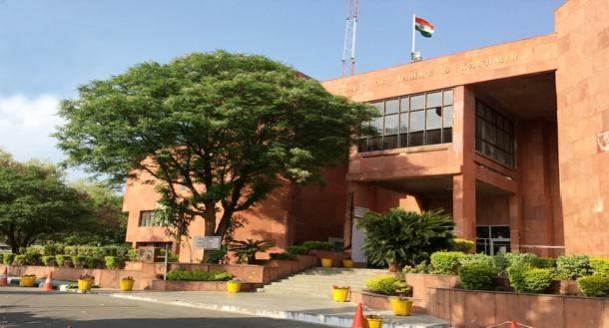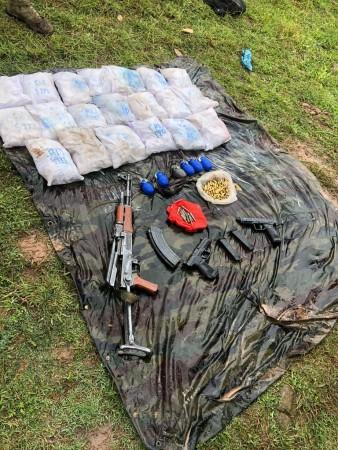
Justice Rajesh Sekhri of the Jammu & Kashmir and Ladakh High Court has observed that narco-terrorism is no longer confined to drug and weapon smuggling alone but has now become a new front in the proxy war unleashed by adversaries across the border.
While rejecting the bail plea of a juvenile accused in a narco-terrorism case, the court noted that releasing him would expose him to criminal elements, endanger him morally and psychologically, and ultimately "defeat the ends of justice."
"The use of narcotics as a terror currency and the cross-border smuggling of narcotics and terror activities have, of late, become a new front of proxy war unleashed by adversaries across the border," Justice Sekhri observed while rejecting the bail application of Manpreet Singh alias Manni, who is allegedly involved in narco-terror activities.

The High Court emphasized that although the petitioner had been declared fit to be tried as an adult, this did not alter his juvenile status in principle. However, the gravity of his actions demanded stricter judicial scrutiny.
Justice Sekhri further remarked, "A dual strategy of sending across drugs and weapons is being employed by the enemy to threaten the economic security of the country, incite subversive activities, and disrupt the social fabric."
He added, "The petitioner is allegedly found to be actively assisting and participating in the activities of an organized narco-terror module along with his associates. Therefore, he cannot be allowed to misuse the beneficial provisions of juvenile legislation to defeat the ends of justice."
With these observations, the High Court dismissed the bail petition.

Juvenile part of cross-border narco-terror module
Investigations conducted by the State Investigation Agency (SIA) revealed that the petitioner was actively assisting his associates and participating in the operations of an organized narco-terror gang. This gang was involved in smuggling narcotic drugs and firearms from Pakistan into Indian territory.
The main kingpin of this module was a Pakistani national code-named Rana, who orchestrated the gang's operations with the intent to incite subversive activities using narcotics as terror currency. Another key accused, Gurpreet Singh alias Billa (A-1), was a major operative in the gang. He used virtual numbers and highly encrypted, sophisticated applications specifically installed on his phones to execute the operation.
Investigators found that A-1 was in direct virtual contact with Rana (A-5), which was corroborated by an FSL report. Screen recordings showed A-1 on a WhatsApp video call with his Pakistani handlers using a virtual number, captured at Hotel Om International, Samba.
Multiple charges under UAPA, NDPS, arms and enemy agents ordinance
The case involves FIR No. 21/2022 registered at Police Station Samba, under multiple stringent laws, including the Unlawful Activities (Prevention) Act (UAPA), NDPS Act, Arms Act, Foreigners Act, and the Enemy Agents Ordinance.
Though Manpreet Singh was under 18 at the time of his arrest, the Juvenile Justice Board declared him fit to be tried as an adult, considering the serious nature of the offences and his level of maturity.
The case was adjudicated by Justice Rajesh Sekhri, who upheld the decision of the trial court to deny bail under Section 12 of the Juvenile Justice (Care and Protection of Children) Act, 2015.
"Although Section 12(1) of the JJ Act provides that a juvenile should ordinarily be released on bail, the law permits denial if the child is likely to come into association with known criminals, may be exposed to moral, physical, or psychological danger, or if the release may defeat the ends of justice," Justice Sekhri concluded.













